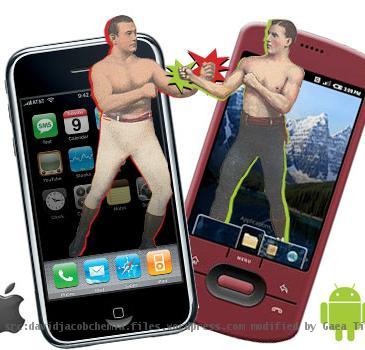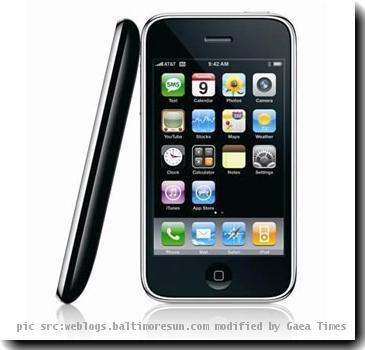Apple issues guidelines for iPhone’s App Store, but leaves room for interpretation
By Peter Svensson, APThursday, September 9, 2010
Apple publishes guidelines for app approval
NEW YORK — Apple Inc. on Thursday gave software developers the guidelines it uses to determine which programs can be sold in its App Store, yet it reserved for itself broad leeway in deciding what makes the cut.
The move follows more than two years of complaints from developers about the company’s secret and seemingly capricious rules, which block some programs from the store and hence Apple’s popular iPhone, iPad and iPod Touch devices.
The guidelines go some way toward addressing those complaints and broadening the discussion about Apple’s custodianship of the App Store.
Software developer Nate Weiner said the approval process has always been “a black hole.” A minor update to his Read It Later app, which saves Web pages, was rejected by the App Store for an unusual reason — it required user registration — and he had a hard time getting a response from the company.
“If you submit an app, you have no idea what’s going to happen,” he said. “You have no idea when it’s going to be approved or if it’s going to be approved.”
The guidelines should be a big help, especially for novice developers, he said.
The rules consist of a long checklist, specifying, for example, that “apps that rapidly drain the device’s battery or generate excessive heat will be rejected.” Also bound to be rejected are “apps containing ‘rental’ content or services that expire after a limited time.”
But some of the guidelines leave much for developers to figure out.
“We will reject Apps for any content or behavior that we believe is over the line. What line, you ask? Well, as a Supreme Court Justice once said, ‘I’ll know it when I see it’. And we think that you will also know it when you cross it,” the guidelines say.
Earlier this year, Apple forced the creator of a comic-book version of James Joyce’s novel “Ulysses” to alter some panels featuring nudity, echoing the censorship debate in the 1920s and 30s, when the novel itself was banned in the U.S. for obscenity.
In the guidelines, Apple draws a line between broader expressions of freedom of speech and the App Store.
“We view Apps different than books or songs, which we do not curate. If you want to criticize a religion, write a book. If you want to describe sex, write a book or a song, or create a medical app,” the guidelines say.
Apple also says it will block applications that don’t do “something useful or provide some lasting entertainment.”
“We don’t need any more Fart apps,” Apple said, referring to prank programs that let off noise.
Corynne McSherry, an attorney at the Electronic Frontier Foundation, a watchdog group, said the guidelines help, but Apple customers should remain concerned that Apple is dictating the content of third-party software.
“These strict guidelines are limiting what’s available to Apple users,” she said.
The App Store’s chief competitor, Google Inc.’s Android Marketplace, has few restrictions for developers. That’s been welcomed by developers, but has also led to a flood of low-quality applications and even some that prey on buyers. Security firm Kaspersky Lab said it found one media player application that secretly sends text-message payments — which get added to phone bills — when installed by Russian phone users.
Despite Apple’s restrictions, or perhaps because of them, Apple’s store has been a runaway success since its launch in 2008, and now has more than 250,000 applications.
Apple, which is based on Cupertino, Calif., has previously named some broadly worded restrictions in its developer agreement, but the agreement itself is confidential. In the guidelines, which offer a bit more details, Apple warns about publicity as well.
“If your app is rejected, we have a Review Board that you can appeal to. If you run to the press and trash us, it never helps,” the company said.
Beyond knowing the guidelines in getting apps approved, some developers say the bigger problem is Apple’s bureaucracy.
Marta Wohrle, who runs a website that reviews beauty products, said her frustrations included having to prove to Apple that her company was a legitimate business. The British woman said approval took three months, making her concurrent quest for U.S. citizenship seem easy by comparison.
“We seemed to be moving quicker at one stage with U.S. immigration than we were with Apple,” she said.
Also Thursday, Apple also said it will lift restrictions imposed earlier this year on using third-party development tools that “translate” code written for another platform. That means developers who work in Adobe Systems Inc.’s Flash or Oracle Corp.’s Java language can convert their programs into iPhone apps without rewriting them. It doesn’t mean that Web pages with Flash will work on the iPhone.
Jefferies & Co. analyst Ross MacMillan said Apple’s reversal may be due to competitive pressure from Android, which is gaining support from phone companies and manufacturers.
Adobe’s main business is selling software for developers, artists and video editors. Its shares jumped on the news, rising $3.58, or 12 percent, to $32.89 in afternoon trading.
Apple shares rose 67 cents, or 0.25 percent, to $263.59. Google shares gained $6.94, or 1.5 percent, to $477.52.
Tags: Communication Technology, Computing And Information Technology, Consumer Electronics, Mobile Communications, Mobile Media, New York, North America, Products And Services, Software, United States


Inkatechnology